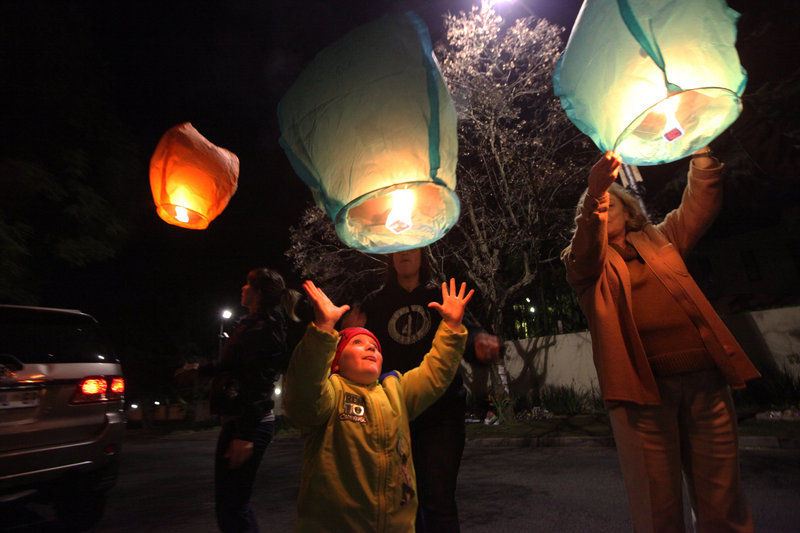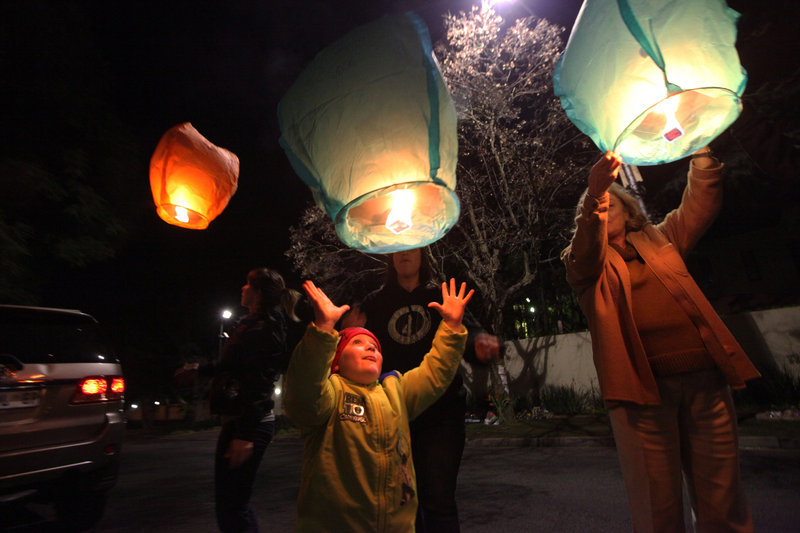PRETORIA, South Africa – The spelling and grammar need work, but the message has its own eloquence.
A 10-year-old’s note to Nelson Mandela, the prisoner who fought South African apartheid, or white racist rule, and became a global emblem of unity and humility, addresses him as “the greates president are land has ever had it is realy bad that you are in the hospital. But realy cool that you stopt apartit. you maid are land A beter place”
It is one of hundreds of messages that have been placed at two makeshift shrines by South Africans and others who are celebrating the life and legacy of Mandela, 94, even as some openly lament that his life may be approaching an end.
The South African government said Monday that Mandela remains in “critical but stable” condition in the hospital where he was admitted on June 8. The hospital in downtown Pretoria is one of those pilgrimage sites; the other is his home in Houghton, a tree-lined neighborhood in Johannesburg where high walls ring expansive homes.
A swell of well-wishers has deposited letters, paintings, candles, stuffed bears and bouquets of flowers outside these spots, reflecting the cathartic mood of a nation whose identity is so closely linked to an ailing man who is out of public sight. It is a bittersweet time for South Africa, proud of its power to reconcile amid racial conflict but struggling to fulfill expectations of a better life two decades after the end of apartheid.
The former president is visited daily by his family, and on Monday the three other surviving defendants in the sabotage trial in which Mandela was sentenced to life in prison in 1964 visited the hospital.
Even in this most vulnerable moment, Mandela is again emerging as an enabler, this time for a new generation, across racial and gender lines.
“I am a 16 year old girl who wanted to meet you very much. Unfortunately I did not have the oppurtunity, but even in the early stages of my life I decided that I wanted to be a caring, loving person just like you,” writes Carien Struwig, who left her telephone number on a note at the Mediclinic Heart Hospital entrance, perhaps hopeful that she might get summoned inside.
“Ps. I am Afrikaans, sorry for any incorrect spelling or grammar,” she writes in English.
Mandela reached out to the Afrikaner community that devised apartheid and jailed him for 27 years, negotiating an end to white minority rule and allaying fears of widespread racial war. Freed in 1990, the anti-apartheid leader was elected president in an all-race vote in 1994, an event that electrified people around the world.
Send questions/comments to the editors.




Success. Please wait for the page to reload. If the page does not reload within 5 seconds, please refresh the page.
Enter your email and password to access comments.
Hi, to comment on stories you must . This profile is in addition to your subscription and website login.
Already have a commenting profile? .
Invalid username/password.
Please check your email to confirm and complete your registration.
Only subscribers are eligible to post comments. Please subscribe or login first for digital access. Here’s why.
Use the form below to reset your password. When you've submitted your account email, we will send an email with a reset code.